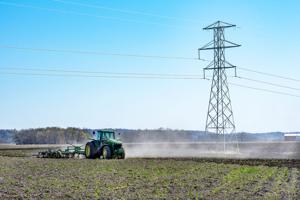(The Center Square) – Some energy experts are raising a red flag that Illinois’ transition to clean energy may prompt reliability issues.
With more coal and gas plants going offline under Illinois’ Climate and Equitable Jobs Act, some lawmakers are concerned of possible brownouts.
During a recent Senate Energy Committee hearing, Brian Thiry, external affairs director with Reliability First Corporation, said retirements of old power sources are outpacing new power sources coming online.
“As we shrink these margins, it is a reliability risk, so it is just something we need to consider. It is a risk that we are seeing and it’s a risk we’re concerned about,” Thiry said.
Thiry warned that some renewable projects could be delayed due to financial problems or supply chain issues.
Diane Holder, vice president of Entity Engagement and Corporate Services with Reliability First, said what they are seeing are reduced reserve margins for energy.
“Retirements are outpacing new installations, and I’m sure you can understand, that is a bit of a gap, and one that we think battery storage can certainly help address, but battery storage is not yet fully developed,” Holder said.
Some state lawmakers have highlighted the fact that some of the retiring plants should have been kept online longer through the clean energy transition.
“My colleagues and I have no issue with the development of alternative sources of energy,” said state Rep. Blaine Wilhour, R-Beecher City. “What we have an issue with is the heavy hand of government forcing the closure of power plants before there are viable alternatives in place.”
According to the Energy Information Administration, as of July 2022, Illinois had the country’s fifth largest energy consumption among states. Just over half of that comes from nuclear, the highest proportion of any state.
The committee plans to meet again to discuss reliability issues in the near future.
“Indiana or Texas, they’re much faster at this,” said state Sen. Suzy Glowiak-Hilton, D-Western Springs. “We are in Illinois. It seems to be really slow, so I’m concerned about our ability to transition quickly.”







